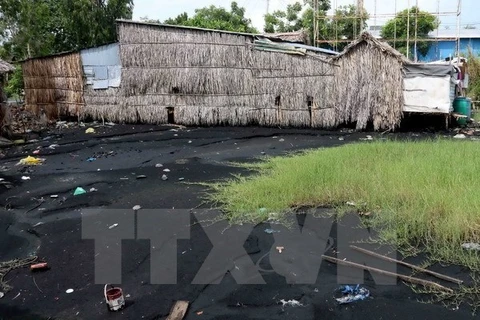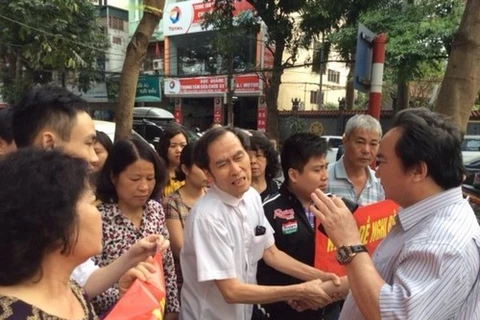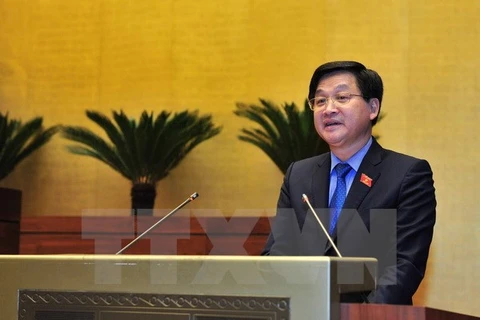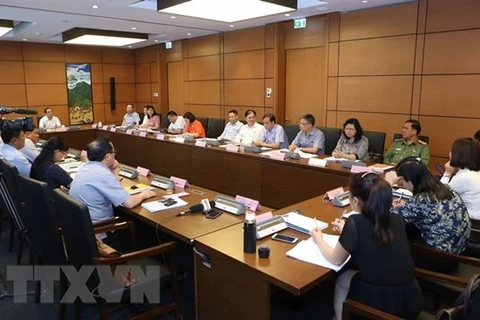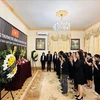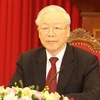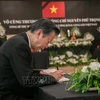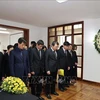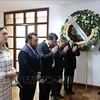 Head of the National Assembly's Law Committee Nguyen Khac Dinh delivers a report summarising ideas on the draft Law on Denunciations (revised) at the NA's fifth session (Photo: VNA)
Head of the National Assembly's Law Committee Nguyen Khac Dinh delivers a report summarising ideas on the draft Law on Denunciations (revised) at the NA's fifth session (Photo: VNA) Hanoi (VNA) – The discussion of the draft Law on Denunciations (revised) on May 24 as part of the 5th session of the 14th National Assembly saw different views on such forms of denunciations as via telephone or email.
While agreeing that it is an urgent need to adopt the law, many disagreed over whether to accept denunciations through phone calls or emails.
The deputies who support the expansion of forms of denunciation to fax, email and phone calls pointed out that the use of information technology has become common in most areas of social life and in State management. They noted that many denunciations of wrongdoings by government officials, public employees and State agencies by means of social networks or other electronic forms, though yet to be officially recognised, have greatly contributed to the fight against corruption, crime and other law violations.
Meanwhile, those who insist that only two forms of denunciation – in written form and in person – as stipulated in the current law, argued that if other forms of denunciation are allowed, it may result in rampant and inaccurate denunciation, causing difficulties to State agencies in processing the denunciations and dealing with denunciators who provide wrong information.
Deputy Nguyen Thanh Thuy of Hau Giang province cited the report on the implementation of the current Law on Denunciations, which showed more than 60 percent of received denunciations were inaccurate, 20 percent contained both wrong and right information and only more than 10 percent were accurate. Thus the deputy said allowing other forms of denunciation will make it difficult to control and handle all the denunciations.
However, deputy Nguyen Huu Cau of Nghe An province cited Clause 1 of Article 15 of the 2005 Law on Corruption Fight and Prevention, which allows reports of corruption by phone, online and other forms as stipulated by law.
“The National Assembly has allowed such forms of denunciation for 13 years, so why should we leave out them in the draft law,” he asked, adding that we should not avoid something just because it causes difficulties to State agencies.
Another issue that drew great attention during the discussion was the rights and duties of denunciators and officials in charge of handling denunciation.
Deputy Nguyen Van Man of Quang Binh province suggested that there should be punishment on officials who showed irresponsibility or handled denunciations against the law which resulted in material loss or harm the mental health and honour of the denunciator.
Many opinions agreed with the draft law which stipulates in Clause 1 of Article 48 that not only the denunciators but also their spouses, parents and parents in law, adoptive parents, own children and adoptive children are subject to protection under the law. -VNA
VNA
